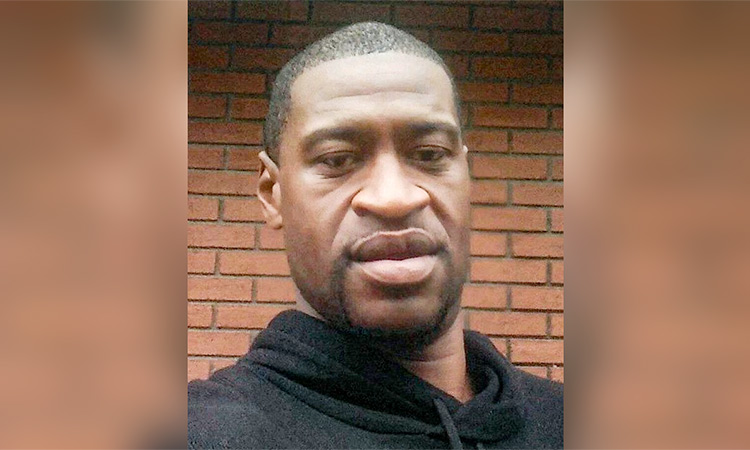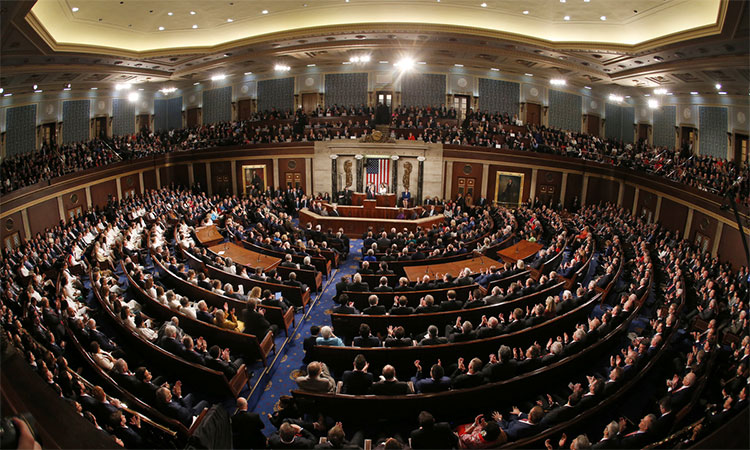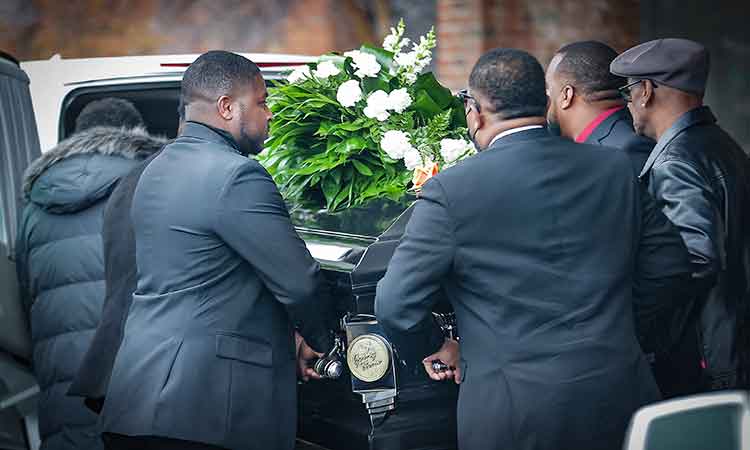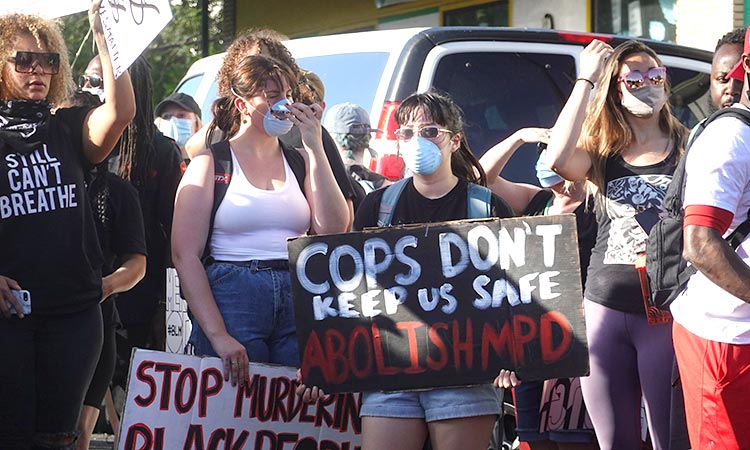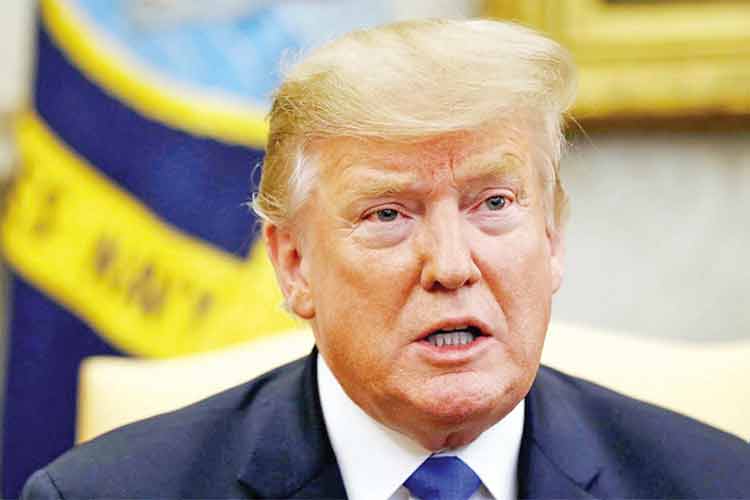The irony

Michael Jansen
The author, a well-respected observer of Middle East affairs, has three books on the Arab-Israeli conflict.

On June 19, 2020, demonstrators block off High Street between Broad and State streets Downtown, as they had done during daily protests last summer over George Floyd’s killing, but this day was a celebration: Juneteenth.
On June 17, US President Joe Biden belatedly signed a law decreeing “Juneteenth,” celebrated for 155 years across the US as “Emancipation Day” for Black slaves. The name has been formed by combining June and 19th, the date in 1865 when US army Major General Gordon Granger arrived in Galveston, Texas, to announce the end of the Civil War and declare African slaves free of their masters. For them, this became liberation day although President Abraham Lincoln had issued the Emancipation Proclamation on January 1st, 1853, and it was made a Constitutional amendment in December 1865.
Granger said if slaves chose to remain on plantations or ranches their masters had to treat them as hired workers and pay them wages, but slave-owning Texans and citizens of the defeated Confederacy ignored emancipation as long as they could without being prosecuted. Nevertheless, June 19 became celebrated by former slaves, their descendants, and was adopted as a holiday by all but two US states.
George Floyd
While legislators had discussed decreeing June 19 a holiday earlier, the impetus to act came from the “Black Lives Matter” movement and the death of George Floyd and other Black citizens at the hands of while police officers.
While the Juneteenth elevation amounts to an occasion for celebration in the long road Black citizens have had to take to attain freedom, they still have a long way to go. The Blackright to vote — essential in a republic — has been challenged consistently since 1870 when Black men were accorded the vote but were deprived of their vote by discriminatory state laws and practices. While the situation was improved by legislation in the 1960s, states continue to pass legislation to prevent Blacks, Hispanics, and other deprived community members from voting.
On May 30, the Republican-controlled Texas state legislature adopted a bill to limit voting hours and options and curtail voting by mail, measures designed to prevent Blacks and Hispanics from voting. As many work in low paying jobs and find it difficult to get time off to cast ballots at polling stations, this measure discriminates against them. Republicans proposed this measure because the majorities from these two communities vote for candidates from the Democratic party. While the bill failed due to a lack of a quorum caused by a boycott by Democratic lawmakers, the Republicans vowed to carry on the fight when next the legislature meets in regular session.
Texas is not alone in this drive to deny non-white citizens voting rights. According to the Brennan Centre of Justice, as of mid-May this year, legislators have tabled 389 bills with restrictive provisions in 48 states and 22 bills have been enacted in 14 states. Furthermore, 61 restrictive bills are being debated in 18 state legislatures and 31 have passed one chamber.
Picture used for illustrative purposes only.
The US Congress — legislating at the national level — seeks to roll back these laws and provide voters with prompt, automatic voter registration and free mail-in voting. Although a large majority of citizens back freedom to vote, Republicans seek to put restrictions in place ahead of the 2022 mid-term elections in which all Congressmen and women and one-third of Senators seek re-election.
It is ironic that the US federal government has proclaimed “Juneteenth” a national holiday with the aim of promoting Black rights while “Indigenous Peoples Day” commemorating their histories and cultures has not been accorded similar treatment. This occasion is marked across the US piece-meal from in 13 states as well as a scattering of cities and communities. Imported African slaves have their day but not the natives of the country who were massacred, ethnically cleansed, rounded up and relegated to lives in poverty in “reservations” if they wanted recognition as “First People.”
“Indigenous Peoples Day” was originally proclaimed to counter the October 12th celebrations of the anniversary of the arrival of 15th century explorer Christopher Columbus landed his ships on American shores, launching a centuries-long aggression against the natives of North, Central and South America. Although the US state of South Dakota adopted Native Peoples Day in 1989, the UN only began to push in 1990 for the replacement of Columbus Day in the US with such an event.
Elsewhere in the Americas, indigenous peoples pressed to mark 1992. the 500th anniversary of the initial voyages of Columbus, as a year to promote “continental unity” and “liberation” with the aim of overcoming continuing discrimination and marginalisation.
One of the most egregious 19th and 20th century practices of state and federal governments in North America was taking indigenous children away from their parents for raising in residential schools where white customs, culture, behaviour, and identification were imposed. The terrible consequences of this policy to steal the identities of indigenous individuals were exposed recently in Canada where a mass grave for 215 indigenous children was found at the former Kamloops Indian Residential School in British Columbia. More are expected to be discovered at the other 129 boarding schools where, between 1883-1996, up to 150,000 indigenous children were brought with the aim of assimilating them into white Canadian society. Some 6,000 children died in such schools and were, reportedly, buried on site. The country’s Truth and Reconciliation Commission concluded in 2015 that the schools carried out a programme of “cultural genocide.”
US native activists believe mass graves will be found at similar institutions in that country where hundreds of thousands of indigenous children attended 367 boarding schools in 27 states; 84 operated by Catholic Christian religious orders as were many of the schools in Canada. While “reconciliation” between tribes and the authorities has been promoted in the US, those involved with exposing the abuses at the schools propose “healing” as being more appropriate since the two sides never had good relations.
Picture used for illustrative purposes only.
The death of George Floyd and the efforts of the US Black community to secure the rights of Black citizens has encouraged natives to launch their own “Native Rights Matter” and, in co-operation with Black Lives Matter, promote an end to abuse of and discrimination against the “First Nation.”
Black Lives Matter has also inspired Palestinian citizens of the US to organise under the banner of “Palestinian Lives Matter” with the aim of countering the mighty pro-Israel lobby in that country and secure liberation of Palestinians from the Israeli occupation which is politically supported and financed by the US.
Early this month, Michele L. Norris wrote an article in The Washington Post carrying the headline: “Germany faced Its horrible past. Can we do the same?” While she focused on the US refusal to atone for and come to terms with its shameful past as the Germans have done for Nazi crimes against humanity, the US also has to take into account its aggressions against other peoples, including Palestinians and Iraqis in this region and a host of others in Latin America and Southeast Asia.
